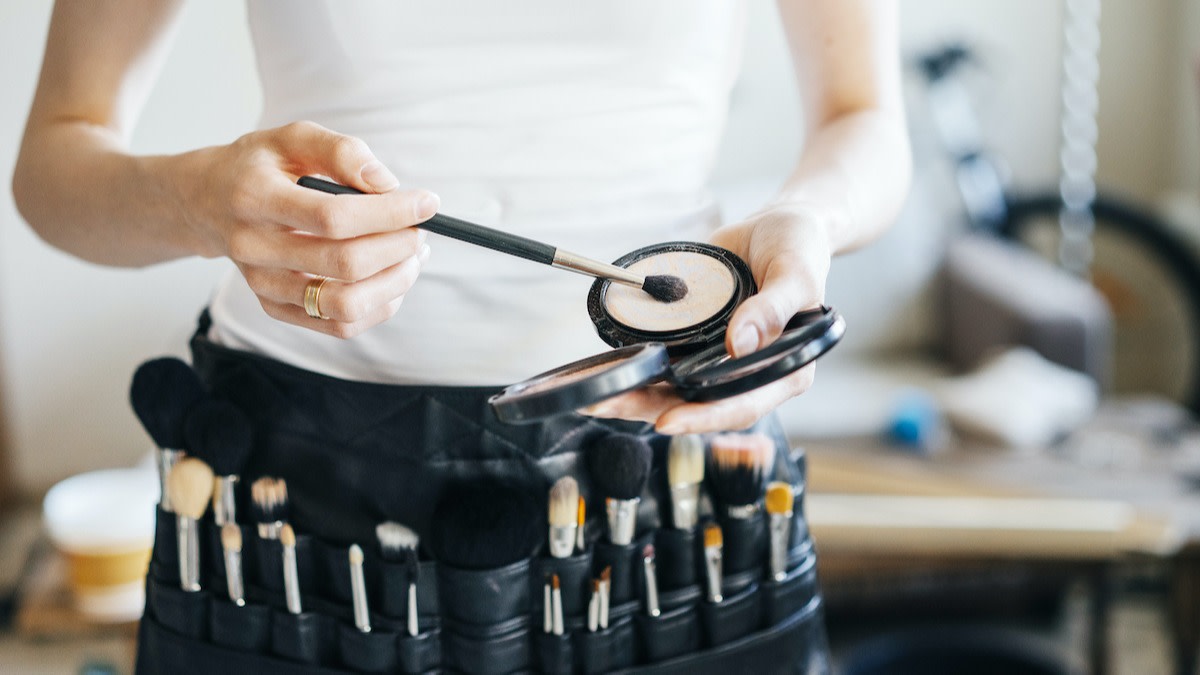How to Become a Makeup Artist: 6 Paths for MUAs
Written by MasterClass
Last updated: Jul 28, 2021 • 3 min read
Inspired by beauty trends, input from clients, and different situations, a makeup artist uses makeup application to create looks for special events, fashion runways, special effects, and more.
Learn From the Best
What Is a Makeup Artist?
Part of the beauty industry, makeup artists (MUA) enhance a person’s appearance, primarily their face, using cosmetic products. While you don’t need to go to makeup school to become an MUA, it can prove beneficial. However, you may need a professional license to work as a makeup artist, though this varies by state.
Makeup artists do not always have traditional full-time jobs, sometimes working on-call or by appointment, and for potentially long hours.
Makeup Artist vs. Similar Roles
Makeup artists, cosmetologists, and estheticians are not interchangeable titles. A makeup artist focuses specifically on applying makeup. Meanwhile, cosmetologists work with the overall appearance, including hair, skin, and nails. Lastly, estheticians help with skincare, providing facials, full-body treatments, massages, and more.
6 Professional Paths for Makeup Artists
Depending on their specific interests, makeup artists can follow several professional paths. Here are a few career options for makeup artists:
- 1. Fashion makeup: These professional makeup artists work on fashion shows and photoshoots to highlight the vision of the designer’s clothes. They create looks that people don’t normally wear in their everyday life but stand out in photographs.
- 2. Bridal makeup: This role focuses on makeup for the bridal party that fits the theme of the wedding and the preferences of the bride. Makeup artists typically meet with the bride prior to the wedding to determine a style and provide touchups throughout the day.
- 3. Beauty brand makeup: This area of makeup artistry works with influencers and companies in the makeup industry to highlight products in stores and in photoshoots.
- 4. Cinematic makeup: As film and television equipment advances, this makeup style requires a smoother finish, but the style depends on the story, director, and genre of the project. These makeup artists typically sit on set for long hours. Movie makeup also includes special effects makeup, where makeup artists create other-worldly prosthetics for actors.
- 5. Theatrical makeup: With bright lights shining on active performers for hours, these makeup artists create looks that withstand heat and sweat. The exaggerated style makes it so it’s visible to everyone in the audience.
- 6. Face and body paint: These artists create expressive and magical looks for clients, often using airbrushes. Their work appears on the screen, in theater, and at special events.
4 Steps to Become a Makeup Artist
In addition to having passion and drive, an aspiring makeup artist should follow a few steps toward their dream career path:
- 1. Hone your craft: Explore all the resources the internet has to offer, and check out your local drugstore makeup counter or beauty supply store for beginner tools. As your makeup looks improve, head to a specialized makeup store to obtain higher-quality tools for a makeup kit. Makeup school will also acquaint students with basic makeup artistry technique.
- 2. Get real-world experience: If you’re not ready for beauty school or another training program, look for jobs at a local beauty store or local theater where a budding makeup artist can practice more exaggerated styles and learn how lighting affects the final look. This is also the time to build your makeup kit so you’re prepared for any occasion.
- 3. Professional training: Cosmetology programs provide makeup artists with hands-on training, as well as the opportunity to network with other makeup artists. You’ll need to build a portfolio to sell your specific services as a professional. Film, television, and fashion don’t typically require you to be a certified makeup artist, though there are exceptions occasionally for those who work with private clients as freelance makeup artists.
- 4. Get your license: Different states have various requirements for working as a makeup artist. Some states require certification, others need a cosmetology license earned through professional training at a cosmetology school. A few states don’t require either. Makeup artists also may need a cosmetologist or esthetician’s license if working in a salon.
Want to Learn More About Makeup and Beauty?
Whether you already know a blush brush from a bronzer brush or are simply looking for tips on bringing glamour into your daily routine, navigating the beauty industry takes knowledge, skill, and practical experience. No one knows their way around a makeup bag better than Bobbi Brown, the makeup artist who built a career and a multi-million dollar brand with one simple philosophy: Be who you are. In Bobbi Brown’s MasterClass on Makeup and Beauty, learn how to do the perfect smoky eye, find the best makeup routine for the workplace, and hear Bobbi’s advice for aspiring makeup artists.
Get the MasterClass Annual Membership for exclusive access to video lessons taught by masters, including Bobbi Brown, RuPaul, Anna Wintour, Marc Jacobs, Diane von Furstenberg, and more.
